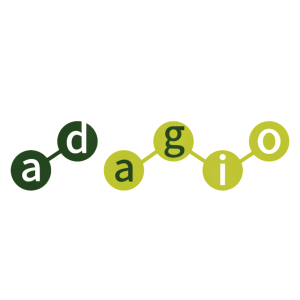Invivyd Announces Selection of Potential Best-In-Class RSV Antibody Candidate VBY329; Targeting 2H 2026 IND Readiness
Rhea-AI Summary
Invivyd (Nasdaq: IVVD) nominated VBY329, a monoclonal antibody candidate for prevention of Respiratory Syncytial Virus (RSV) in newborns, infants, and children, and plans to advance it toward IND readiness in 2H 2026. In vitro data show average antiviral potency 1.5-fold vs nirsevimab and 1.2-fold vs clesrovimab, plus up to ~500-fold enhanced neutralization against nirsevimab-resistant RSV F protein variants in pseudovirus assays. VBY329 includes half-life extension and biophysical properties expected to provide equivalent or greater in vivo half-life versus comparators. Invivyd said it will present in vitro data at a future medical congress and continues discovery work on ultra-long half-life RSV antibodies for elderly and immunocompromised populations.
Positive
- Potency: 1.5-fold greater antiviral potency vs nirsevimab (average)
- Comparator potency: 1.2-fold greater antiviral potency vs clesrovimab (average)
- Resistance profile: up to ~500-fold enhanced neutralization vs nirsevimab-resistant variants in pseudovirus assays
- Development timeline: targeted IND readiness in 2H 2026
Negative
- Preclinical stage: VBY329 is nominated for preclinical development with no clinical data reported
- Evidence limited to in vitro: key claims (potency, resistance, half-life) are based on in vitro and pseudovirus assays only
News Market Reaction
On the day this news was published, IVVD declined 4.00%, reflecting a moderate negative market reaction. Argus tracked a trough of -6.5% from its starting point during tracking. Our momentum scanner triggered 5 alerts that day, indicating moderate trading interest and price volatility. This price movement removed approximately $28M from the company's valuation, bringing the market cap to $661M at that time.
Data tracked by StockTitan Argus on the day of publication.
- VBY329 is designed for the prevention of Respiratory Syncytial Virus (RSV) infections in newborns, infants, and children, and results from Invivyd’s proprietary antibody discovery technology platform
- VBY329 meets Invivyd’s target profile of higher potency and improved barrier to resistance compared to standard of care RSV medicines, as assessed in vitro:
- Antiviral potency 1.5-fold greater on average than nirsevimab and 1.2-fold greater on average than clesrovimab against established authentic RSV strains representing circulating variants
- Resistance profile compared to nirsevimab reflects up to approximately 500-fold greater enhanced neutralization activity against RSV F protein variants resistant to nirsevimab in pseudovirus assays that reflect contemporary, circulating, nirsevimab-resistant variants associated with various RSV A & B strains
- Half-life extension technology and biophysical properties expected to confer equivalent or greater in vivo half-life compared to nirsevimab and clesrovimab, which, along with higher potency, may expand the protective window of VBY329 compared to standard of care
- Invivyd expects to advance VBY329 toward IND readiness in 2H 2026 for development in pediatric RSV prophylaxis, a blockbuster pharmaceutical market in 2024, expected to grow to
$3 -$4 billion in annual revenues globally by 2030 - Additional Invivyd discovery efforts focus on ultra-long half-life RSV antibodies with the aim of a candidate RSV vaccine-alternative for elderly and immunocompromised populations
NEW HAVEN, Conn., Nov. 24, 2025 (GLOBE NEWSWIRE) -- Invivyd, Inc. (Nasdaq: IVVD) today announced it has identified and nominated for preclinical development a potentially best-in-class monoclonal antibody candidate for the prevention of Respiratory Syncytial Virus (RSV) among neonates, infants, and children. Invivyd’s investigational antibody, VBY329, was generated by Invivyd’s proprietary antibody discovery technology, targeted at high value infectious diseases. RSV is a common respiratory illness and is the leading cause of hospitalization for infants in the United States.
“We are pleased that our technology platform has enabled us to identify such a promising candidate and are thrilled with the in vitro properties VBY329 demonstrates,” commented Robert Allen, Ph.D., Chief Scientific Officer of Invivyd. “Following a screen that required greater resistance to variation than can be seen with class-leader nirsevimab, we have also achieved a major step change in average product potency compared to nirsevimab and clesrovimab. These biophysical properties are understood to predict the extent of protection from lower respiratory tract infection following from RSV infection in babies, as well as expanding the duration of likely protection.”
VBY329 follows from a discovery strategy that required it to demonstrate differential binding activity against pre-fusion stabilized F proteins from RSV-A2 and RSV-B313726, as well as proteins encoding resistance determinants to nirsevimab, and to demonstrate improved neutralization potency within a pseudovirus panel representing this collection of variants. Invivyd anticipates that success along these lines demonstrates biophysical properties that may predict best-in-class clinical performance compared to standard of care.
“We are proud of our progress with VBY329,” noted Marc Elia, Chairman of the Invivyd Board of Directors. “RSV prophylaxis among babies and children under 24 months is a blockbuster, rapidly growing pharmaceutical market that frees our youngest, most vulnerable Americans, including newborns, from a high-burden pathogen, all without requiring the immune stimulation of a vaccine. Monoclonal antibodies have served vulnerable young children and their parents and care teams for almost 30 years, and can be considered a model for other infectious diseases where populations would benefit from robust protection beyond the capabilities of a vaccine.”
Invivyd expects to present in vitro VBY329 data at a future medical congress. Invivyd is moving VBY329 into IND-enabling processes with a goal of IND readiness in the second half of 2026.
Invivyd, via its proprietary technology platform, continues to investigate additional monoclonal antibodies for protection and treatment of important infectious diseases, such as measles, among vulnerable populations.
About VBY329
VBY329 is a novel, potential best-in-class monoclonal antibody (mAb) candidate being developed to prevent Respiratory Syncytial Virus (RSV) among neonates, infants, and children.
About Invivyd
Invivyd, Inc. (Nasdaq: IVVD) is a biopharmaceutical company devoted to delivering protection from serious viral infectious diseases, beginning with SARS-CoV-2. Invivyd deploys a proprietary integrated technology platform unique in the industry designed to assess, monitor, develop, and adapt to create best in class antibodies. In March 2024, Invivyd received emergency use authorization (EUA) from the U.S. FDA for a monoclonal antibody (mAb) in its pipeline of innovative antibody candidates. Visit https://invivyd.com/ to learn more.
Trademarks are the property of their respective owners.
Cautionary Note Regarding Forward-Looking Statements
This press release contains forward-looking statements within the meaning of the Private Securities Litigation Reform Act of 1995. Words such as “anticipates,” “believes,” “could,” “expects,” “estimates,” “intends,” “potential,” “predicts,” “projects,” “targets” and “future” or similar expressions (as well as other words or expressions referencing future events, conditions or circumstances) are intended to identify forward-looking statements. Forward-looking statements include statements concerning, among other things, the company’s RSV discovery program, and the potential of VBY329 as a novel, potential best-in-class mAb candidate being developed to prevent RSV among neonates, infants, and children; the company’s anticipated development timeline for VBY329 and goal of IND readiness in the second half of 2026; Invivyd’s expectation that certain properties of VBY329 assessed in vitro may predict best-in-class clinical performance compared to standard of care medicines; the potential for the half-life extension technology and biophysical properties of VBY329 to confer equivalent or greater in vivo half-life compared to nirsevimab and clesrovimab; expectations about the market size and opportunity for pediatric RSV prophylaxis; the potential of Invivyd’s additional discovery efforts focused on ultra-long half-life RSV antibodies to result in identifying a candidate RSV vaccine-alternative for elderly and immunocompromised populations; Invivyd’s expectation to present in vitro VBY329 data at a future medical congress; the potential of Invivyd’s technology platform to investigate additional monoclonal antibodies for protection and treatment of important infectious diseases, such as measles, among vulnerable populations; the company’s devotion to delivering protection from serious viral infectious diseases; and other statements that are not historical fact. The company may not actually achieve the plans, intentions or expectations disclosed in the company’s forward-looking statements and you should not place undue reliance on the company’s forward-looking statements. These forward-looking statements involve risks and uncertainties that could cause the company’s actual results to differ materially from the results described in or implied by the forward-looking statements, including, without limitation: the timing, progress and results of the company’s discovery and preclinical development activities, including with respect to VBY329; whether the company’s discovery efforts will result in identifying a candidate RSV vaccine-alternative for elderly and immunocompromised populations or a monoclonal antibody candidate for protection or treatment of measles, and the timing thereof; whether or not any preclinical candidate identified by the company is determined to be suitable for clinical development; the risk that results of nonclinical studies or clinical trials may not be predictive of future results, and interim data are subject to further analysis; the predictability of clinical success of the company’s product candidates based on neutralizing activity in nonclinical studies and the assessment of other in vitro properties; potential variability in neutralizing activity of product candidates tested in different assays, such as pseudovirus assays and authentic assays; the company’s reliance on third parties with respect to virus assay creation and product candidate testing; uncertainties related to the regulatory authorization or approval process, and available development and regulatory pathways for authorization or approval of the company’s product candidates; changes in the regulatory environment; whether VBY329 has an equivalent or greater in vivo half-life compared to nirsevimab and clesrovimab; changes in expected or existing competition; the complexities of manufacturing monoclonal antibodies; macroeconomic and political uncertainties; the company’s ability to continue as a going concern; and whether the company has adequate funding to meet future operating expenses and capital expenditure requirements. Other factors that may cause the company’s actual results to differ materially from those expressed or implied in the forward-looking statements in this press release are described under the heading “Risk Factors” in the company’s Annual Report on Form 10-K for the year ended December 31, 2024, and its Quarterly Report on Form 10-Q for the quarter ended September 30, 2025, each filed with the Securities and Exchange Commission (SEC), and in the company’s other filings with the SEC, and in its future reports to be filed with the SEC and available at www.sec.gov. Forward-looking statements contained in this press release are made as of this date, and Invivyd undertakes no duty to update such information whether as a result of new information, future events or otherwise, except as required under applicable law.
This press release contains hyperlinks to information that is not deemed to be incorporated by reference in this press release.
Contacts:
Media Relations
(781) 208-0160
media@invivyd.com
Investor Relations
(781) 208-1747
investors@invivyd.com







